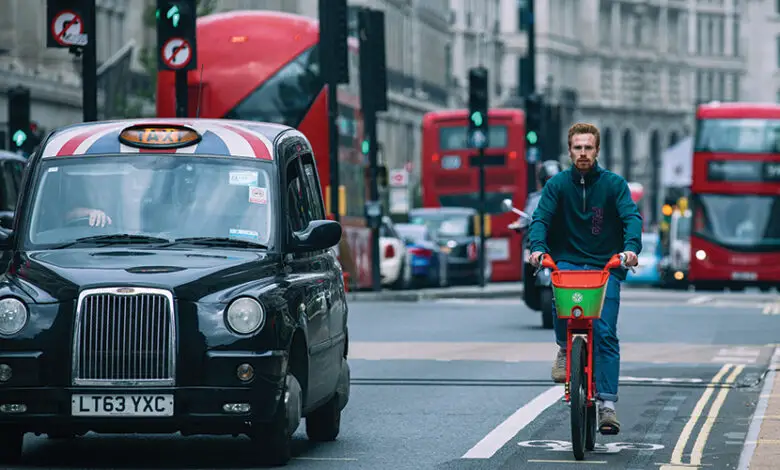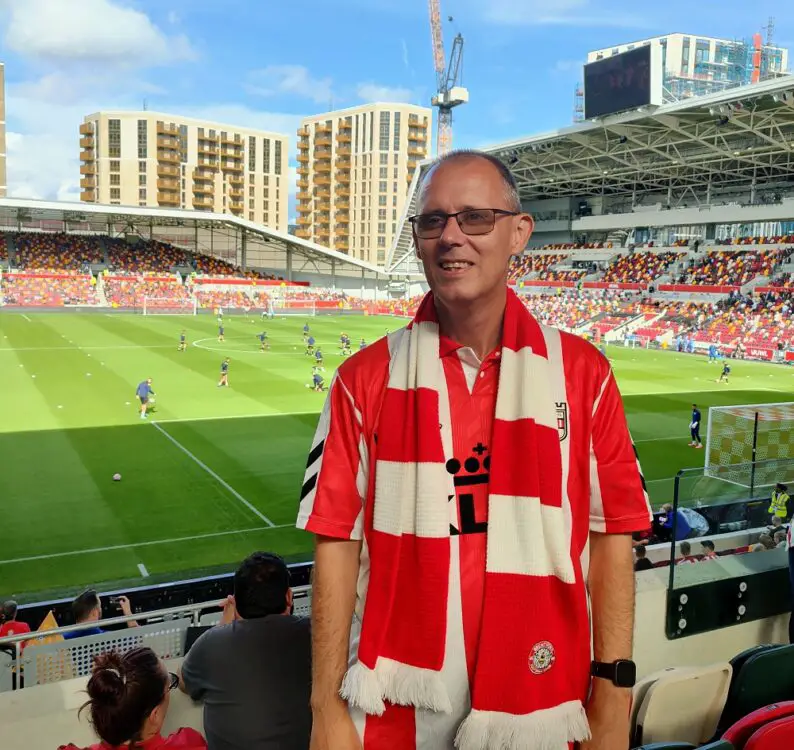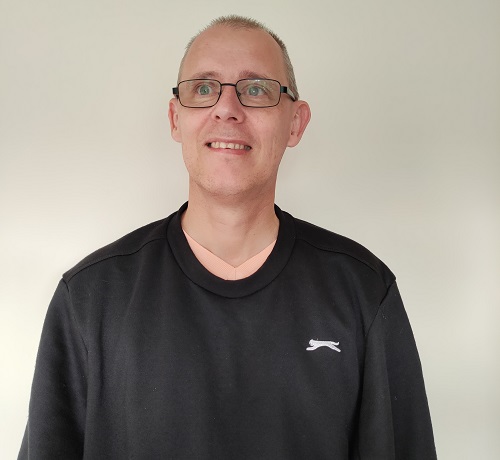
Why it’s so important for TfL to hear disabled people’s views
Transport for London (TfL) is working to create change. It wants to minimise congestion and pollution in the city to make a real difference to climate change.
To do so, it’s proposing to expand the ultra low emissions zone and cut some bus routes into central London. But it’s mindful of the impact on anyone who lives in London or visits our capital, including those with a disability or health condition. That’s why it’s asking for your views on how it will affect you.
Here, we talk to Gary Murphy, who is managing the emissions zone consultation and is partially sighted, about why he believes everyone should have their say on the possible changes.
UPDATE 30th July: This expansion of the ultra low emissions zone survey is now CLOSED.
Please visit the TfL air quality consultation page to find out more about what will be happening next now that TfL has gathered all the feedback.
Take the TfL surveys NOW
Expansion of the ULEZ – closing 29th July
Minimsing London bus routes – closing 7th August
Please tell Disability Horizons readers a bit about yourself?
I am a very keen Brentford FC supporter and have been following the ‘bees’ for nearly 40 years. Thankfully my wife and children are also now keen ‘bees’ so we travel around the country as much as possible to watch them play.
I am partially sighted with no sight in my left eye and only 8% in my right.
At football games, I get commentary at the grounds, where they’re available. When they’re not, my family are very helpful and let me know what is happening.
During the summer months, I have an allotment, which keeps me busy and happy, especially if I can get to the produce before the snails, insects or birds.
During lockdowns, I have started running to help with my mental health and general fitness. I started running for 10 minutes a week, and am now running and training for my first ever half marathon.

When and how did you start working with TfL and what do you do now?
I started working in TfL in 2004. I worked in the London bus call centre taking complaints from the general public.
I become a team leader the following year and then moved on to become a stakeholder advocate, which essentially involves taking complaints from Councillors and MPs.
Part of that role also involved consulting on bus route changes. This was my first experience with consultations. Our team then evolved to doing consultations across all of TfL. I have been in the team since then.
I have worked on amazing projects, such as Crossrail 2, the Bakerloo line extension and Step Free access to the tube.
Any TfL changes affect so many people’s lives, so it’s vital that we fully understand what the alterations mean for people using them day-in-day-out.
Tell us about the recent ultra low emissions zone (ULEZ) consultation TfL is running and why it’s important TfL hears from people living in London and visiting regularly?
Air quality and pollution are a problem in London, contributing to thousands of premature deaths. TfL has been asked by the mayor of London to consult on the possible expansion of the ULEZ to combat this.
This extension would take the most polluting vehicles off London’s roads. However, we do appreciate that this proposal is not without some difficult issues and the consultation aims to draw these out.
We want to hear from people who are negatively and positively impacted by the proposal. Will the better air quality allow people to travel into London? Will you have issues with your vehicle meeting the emissions standards?
We believe that people with disabilities will benefit from better air quality. In fact, having spoken to a few local disability groups, we know that some are really keen for us to go ahead with the proposals because of the benefit it will have to their health.
But we appreciate that travelling into the zone could be costly and problematic for some vehichles.
For example, others from the local groups have told us that they are worried about their adapted vehicle not being renewed as older models tend not to be compliant with the emission standards. Some are also worried that they won’t be able to make as many journeys as they currently do because of the cost.
This is why it’s so important that we fully understand what the impact will be on everyone. We want to know your travel reasons and ideas around mitigating any issues that will arise for you and your situation.
TfL wants to hear from people from all walks of life in all different situations, including disabled people and those with health conditions. For you, why is this important?

My job is to make sure I can present the views of people who are impacted by the proposals that we are consulting on.
I need to know, through the consultation, everyone’s views, how they will be affected, what it means for them and their families and what they are going to be doing as a result of the proposed changes.
I can then report these views to TfL colleagues and, on this occasion, the Mayor of London.
Disabled people’s views are seldom heard and I want to change this. That is why we’ve chosen to work with Disability Horizons.
Also, being a disabled person myself, I also appreciate the impact that the changes we make as an organisation can have on people’s lives and journeys.
Speaking from personal experience, a simple change in how a junction works outside my office had a big impact on me every day. I suddenly felt a little unsafe and exposed whilst crossing the road, the same road I had crossed for five years previously.
So having an understanding of how these changes can alter disabled people’s lives gives me the determination to hear their views.
Whatever your circumstance, your view is so important in shaping this policy. Your view and or experience really does make a difference.
How have people’s views actually made a difference to what TfL has done in the past?

I have been involved in several consultations where local views have changed our proposals. For example, a bus route in Bromley was going to alter to better serve the national rail station.
However, as a result of this alteration, a small, local community at the bottom of a hill wouldn’t have been able to use the bus network.
The views of this group, along with everyone else, were taken into account the change did not go ahead – local elderly and disabled people were delighted with the result.
We have also done a consultation around installing a bus route to help serve an area not covered by the bus network but that has a population of people who couldn’t walk the distance to the current bus stop.
The consultation wasn’t popular as people didn’t want a bus travelling along their road. But the views of the people who benefited from this new route were also taken into account and the bus route was installed.
With this consultation, what is TfL doing to ensure everyone’s voice is heard and how are you making it happen?
We are putting adverts in national newspapers, on the radio, in the Metro, online and in as many newsletters as I can find. We want to reach as many people as possible so that no one is left out.
I have a superb stakeholder management team supporting this work and talking to local groups, hospitals, and business groups to get their views.
These strategic views are great, but we really want to hear from individual voices too – they’re the people who will feel the impact of these changes on their everyday lives.
We have our online survey, telephone service, easy-read versions of the material, BSL videos and audio files. I hope we have covered as many angles as possible, but we would welcome any views in any way it is presented.
Take the online survey now to make your voice heard. There is also:
- an Easy Read version of the proposals
- an Easy Read Version of the survey
- an audio version of the survey (an audio version of the proposal will be ready soon)
- a British Sign Language video of the proposal
- a British Sign Language video of the survey.
You have until 29th July 2022 at 23.59 UK time.
If you prefer not to complete the survey, then please submit your response to us in writing to cleanairyourview@tfl.gov.uk or FREEPOST TFL HAVE YOUR SAY (no stamp required).
You can also phone 0343 222 1155 to record your response or ask a question.
If you need to translate the TfL information into another language, please use the ‘select language’ button in the bottom left-hand corner of the TfL air quality consultation page.
If you know of any local community groups or meetings that you would like to invite a member of the project team to, please email us at cleanairyourview@tfl.gov.uk or call 0343 222 1155 with details of the meeting and we will call you back.
By Gary Murphy at TfL
More on Disability Horizons…